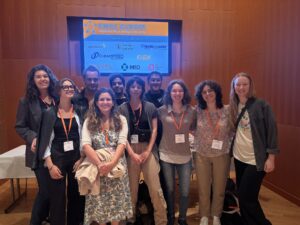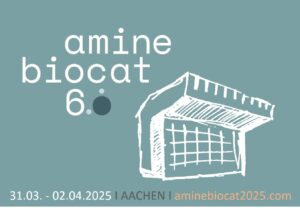
Squalene-hopene cyclases are a highly valuable and attractive class of membrane-bound enzymes as sustainable biotechnological tools to produce aromas and bioactive compounds at industrial scale. However, their application as whole-cell biocatalysts suffer from the outer cell membrane acting as a diffusion barrier for the highly hydrophobic substrate/product, while the use of purified enzymes leads to dramatic loss of stability. Here we present an unexplored strategy for biocatalysis: the application of squalene-hopene-cyclase spheroplasts. By removing the outer cell membrane, we produce stable and substrate-accessible biocatalysts. These spheroplasts exhibit up to 100-fold higher activity than their whole-cell counterparts for the biotransformations of squalene, geranyl acetone, farnesol, and farnesyl acetone. Their catalytic ability is also higher than the purified enzyme for all high molecular weight terpenes. In addition, we introduce a concept for the carrier-free immobilization of spheroplasts via crosslinking, crosslinked spheroplasts. The crosslinked spheroplasts maintain the same catalytic activity of the spheroplasts, offering additional advantages such as recycling and reuse. These timely solutions contribute not only to harness the catalytic potential of the squalene-hopene cyclases, but also to make biocatalytic processes even greener and more cost-efficient.
Great work in collaboration with the group of Bernhard Hauer in Stuttgart!
Read the full paper here



